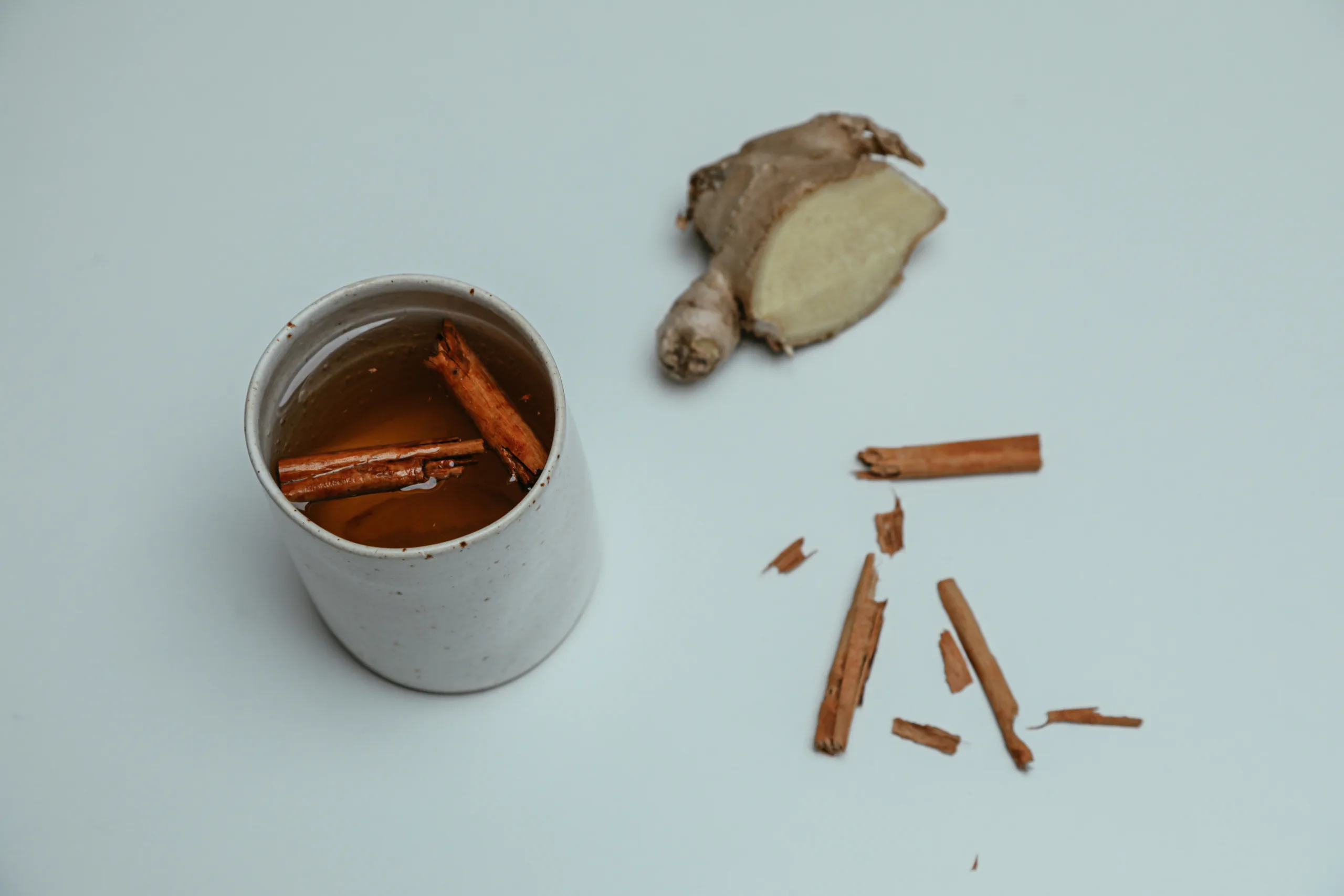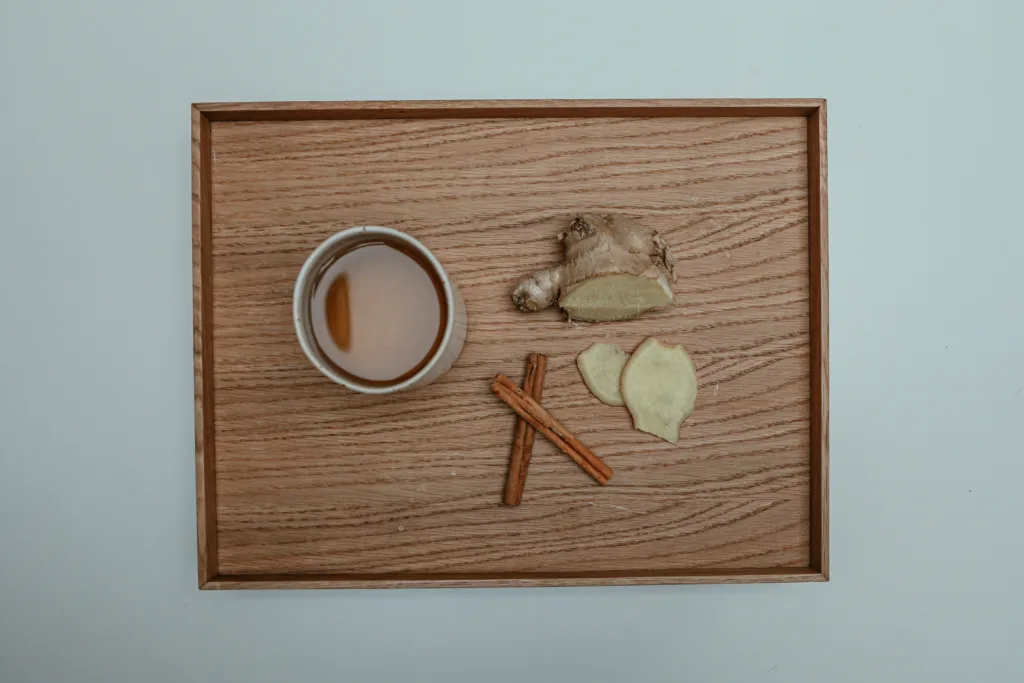Ginger tea is a popular herbal drink that may offer various health benefits. But is ginger tea low Fodmap? For those who are on a low Fodmap diet, it is important to know which foods and drinks are safe to consume. In this article, we’ll discuss the Fodmap content of ginger tea, its potential health benefits, and how to make a delicious cup of ginger tea.
FODMAP stands for Fermentable Oligosaccharides, Disaccharides, Monosaccharides, and Polyols – which are a group of short chain carbohydrates that can be difficult for some people to digest.
What is IBS?
Irritable Bowel Syndrome (IBS) is a common disorder that affects the large intestine. It is characterized by abdominal pain, discomfort, bloating, and changes in bowel habits. IBS is a chronic condition that can last for years and can vary in severity from person to person. Symptoms may come and go, and episodes of more severe symptoms may be followed by periods of improvement or remission. Common symptoms include cramping, abdominal pain and bloating, changes in bowel movements (diarrhea, constipation, or both), gas and mucus in the stool.
IBS is not a dangerous or life-threatening condition but it can have a significant impact on quality of life. It is estimated to affect between 10-20% of people in the United States and is more common in women than men. The cause of IBS is not known but there are many possible contributing factors such as diet, stress, lifestyle factors and the microbiome of the gut. Treatment for IBS focuses on symptom relief through diet modifications, medications and psychological therapies such as cognitive behavioral therapy (CBT).
Is Ginger Tea Low Fodmap?
Ginger tea is a popular beverage that is known for its health benefits. It can help to alleviate nausea, reduce inflammation, and even improve digestive health. For those on a low FODMAP diet, however, it is important to know whether or not ginger tea is suitable.
Fortunately, ginger tea is generally considered to be low FODMAP. This means that those who are following a low FODMAP diet can safely enjoy it without worrying about triggering digestive symptoms. The key thing to remember when drinking ginger tea is to use only fresh ginger root or pre-prepared ginger tea bags that contain only ginger and no added ingredients.
When using fresh ginger root, it is important to note that the amount of FODMAPs depends on the amount of ginger used. A small amount of fresh ginger (around 1 teaspoon) should be ok for those on a low FODMAP diet, while larger amounts might cause digestive issues. Additionally, pre-prepared tea bags should always be checked for added ingredients before consuming them as some brands may contain high-FODMAP ingredients such as honey or agave syrup.
Click here to preview your posts with PRO themes ››
Overall, most people on a low FODMAP diet can safely enjoy ginger tea in moderation without having to worry about triggering digestive symptoms. Just make sure to use only fresh ginger root or pre-made tea bags with no added ingredients and stick to recommended portion sizes for best results.
The Benefits of Ginger Tea for IBS
IBS, or irritable bowel syndrome, is a common digestive disorder that can cause abdominal discomfort and other unpleasant symptoms. Many people are turning to ginger tea as a natural remedy to help alleviate IBS symptoms. Ginger has anti-inflammatory properties that can help reduce inflammation in the digestive system and may also help reduce abdominal cramping. It may also be beneficial in reducing nausea and vomiting, as well as relieving constipation.
Ginger tea is easy to make at home with fresh or powdered ginger. To make the tea, simply steep the ginger in hot water for five to 10 minutes before straining out the solids. You can also add other herbs or spices like cinnamon or peppermint to your tea for an extra boost of flavor. Drinking ginger tea daily can be an effective way to manage IBS symptoms and improve overall digestive health.
Ginger tea is not the only way to get the benefits of ginger for IBS relief. Taking powdered ginger supplements may also be beneficial in relieving some of the more uncomfortable symptoms associated with IBS. It is important to speak with your doctor before taking any dietary supplements, as they may interact with certain medications or have adverse effects on some people. Additionally, it’s important to note that consuming large amounts of ginger can cause unpleasant reactions such as heartburn or stomach upset.
Overall, drinking ginger tea can be a great natural remedy for managing IBS symptoms and maintaining overall digestive health. While it is not a substitute for medical treatment, adding this tasty beverage into your daily routine can be a simple and delicious way to reduce inflammation and discomfort associated with this common digestive disorder.
Ginger Tea and FODMAPS
Ginger tea is a popular herbal drink made from the root of the ginger plant. It has many health benefits, including being low in calories and containing antioxidants. Because of this, it’s often recommended as part of a healthy diet. However, some people may need to be mindful when consuming ginger tea, as it contains FODMAPs.
Click here to preview your posts with PRO themes ››
FODMAPs are types of carbohydrates found in certain foods that can cause digestive issues for some people. Fortunately, ginger tea is generally considered low in FODMAPs, making it an excellent beverage choice for those on a low-FODMAP diet. To make sure your ginger tea is low in FODMAPs, make sure you use fresh ginger root instead of pre-packaged versions that might contain other ingredients that are high in FODMAPs. Additionally, make sure you don’t overdo it – drinking too much ginger tea can cause digestive issues for some people.
For those looking for an alternative to ginger tea with even lower levels of FODMAPs, green or white teas are good options as they are naturally low in FODMAPs and provide similar health benefits as ginger tea.

Preparation of Low FODMAP Ginger Tea
Ginger tea is a delicious beverage that can be consumed as part of a low FODMAP diet. It has many health benefits, including aiding digestion and providing anti-inflammatory properties. To prepare low FODMAP ginger tea, start by cutting a piece of fresh ginger root into thin slices. Place the slices in a medium size teapot and pour boiling water over the ginger. Let it steep for 5 minutes, then remove the ginger slices and discard them. For added flavor, you can add lemon or honey to the tea. Stir well and enjoy your cup of low FODMAP ginger tea!
Ginger tea is an excellent option for those following a low FODMAP diet as it does not contain any high FODMAP ingredients. It is also easy to make and can be enjoyed hot or cold. To make a cold version of this tea, simply steep the ginger in hot water for 5 minutes before transferring it to a glass filled with ice cubes. The cold version of this tea can be stored in the fridge for up to 3 days. Enjoy!
Potential Side Effects of Drinking Low FODMAP Ginger Tea
Low FODMAP ginger tea is a popular beverage for those with digestive issues like irritable bowel syndrome (IBS). While it can provide some relief from symptoms, there are some potential side effects that should be considered. Ginger tea can cause heartburn and stomach upset, as well as increase acid production in the stomach. It may also interact with certain medications, so it’s important to talk to your doctor before drinking ginger tea. Additionally, if you have gallbladder issues, drinking too much ginger tea can make them worse. Finally, ginger tea contains caffeine and should be consumed in moderation or avoided altogether if you’re sensitive to caffeine.
Click here to preview your posts with PRO themes ››
In general, it’s best to start slowly when drinking low FODMAP ginger tea. Drink small amounts at first and see how your body responds before increasing the amount you drink. If you experience any adverse reactions such as heartburn or stomach upset, stop consuming the tea and consult your doctor.
Is Low Fodmap Diet Recommended for People with IBS?
The low FODMAP diet is a specific diet plan that has been recommended for people with irritable bowel syndrome (IBS). The diet involves eliminating certain foods, such as those containing excess fructose and lactose, which can be difficult to digest and cause symptoms of bloating and abdominal pain. The goal of the low FODMAP diet is to reduce symptoms of IBS by avoiding these specific trigger foods.
Studies have found that the low FODMAP diet is an effective way to reduce symptoms in some individuals with IBS. Research has shown that following a low FODMAP diet can help reduce abdominal pain, improve stool consistency, and decrease bloating for some individuals with IBS. However, it is important to note that this type of diet may not be suitable for everyone.
It is important to consult with a doctor or nutritionist before starting the low FODMAP diet. This will ensure that any potential health risks are discussed and any necessary changes are made. Additionally, it may take some time to find the right balance of foods that work best for an individual’s body and health needs.
Overall, the low FODMAP diet can be an effective way to manage IBS symptoms in some individuals. To determine if this type of diet would be beneficial, it is important to speak with a medical professional first who can provide guidance on what foods are best avoided and how best to implement this type of dietary plan.

Conclusion
Ginger tea is a great option for those following a Low FODMAP diet and anyone looking to add a delicious and healthy beverage to their day. Not only is it low in FODMAPs, it has many other benefits and can help with digestive issues, inflammation, and nausea. There are many ways to enjoy ginger tea, including adding other ingredients like honey or citrus juices.
Overall, ginger tea is a great addition to any diet. It is low in FODMAPs, has many health benefits, and can easily be made at home. It’s worth trying out if you’re looking for an easy way to stay healthy and enjoy delicious drinks.
The Low FODMAP diet can be challenging for some people but adding ginger tea into your day can make it easier and even enjoyable. Give it a try and see how you feel!

